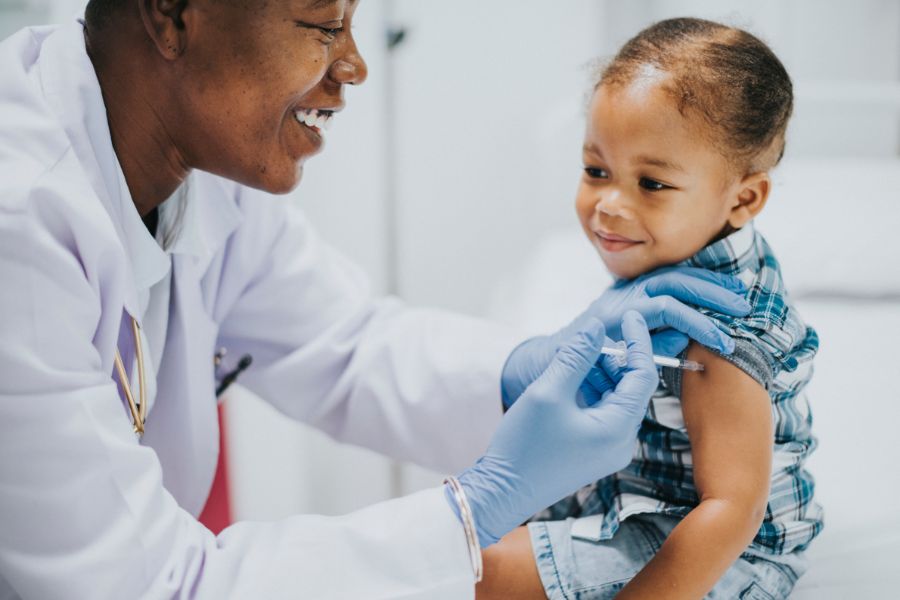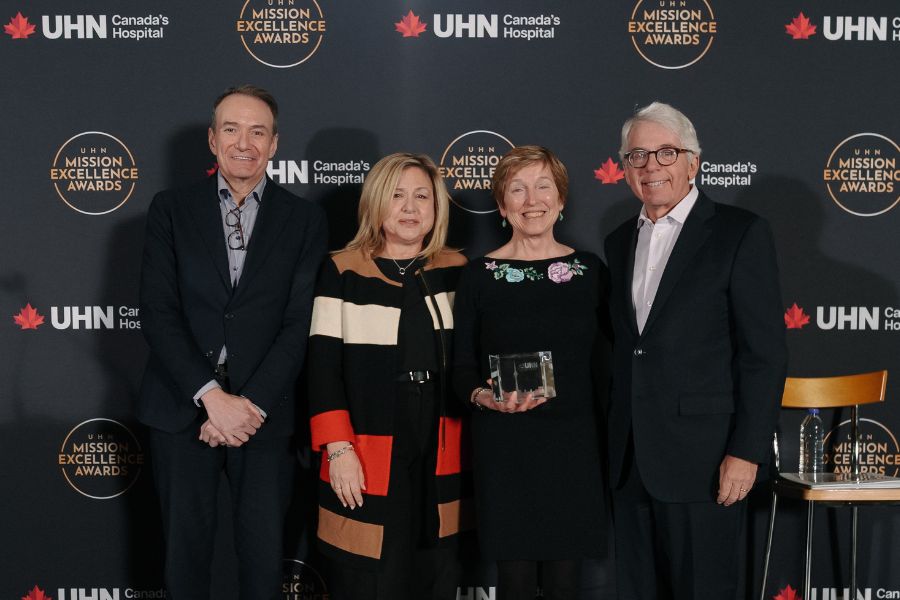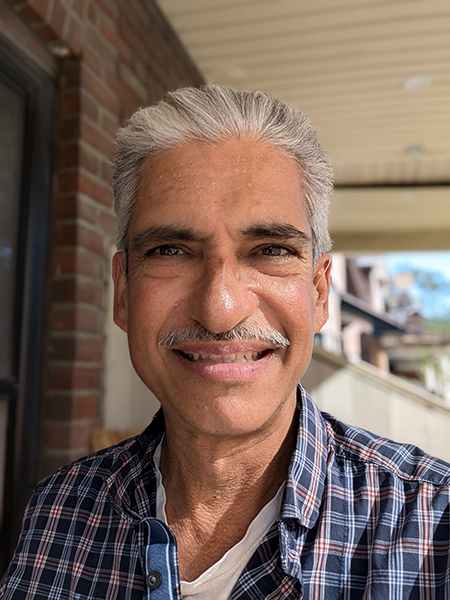
Why does suffering exist? What is my purpose?
Those are the questions Levi Lumumba would ask himself as he grew up with chronic kidney disease (CKD).
After being diagnosed with nephrotic syndrome at age three, Levi was cared for at the Hospital for Sick Children (SickKids) until turning 18. He was transferred to UHN, where he eventually began hemodialysis treatment. He now receives home dialysis.
“Your mind becomes your own worst enemy,” says Levi, now 24, noting the transition to dialysis was one of the scariest parts of his journey. “It was the most unstable period, filled with uncertainty.
“Things were not in my hands, but those of the medical community,” says Levi, who credits his strong Christian faith and unwavering support of his family for keeping him grounded.
Thursday, March 13 is World Kidney Day. This year’s theme is: “Are your kidneys OK? Detect early, protect kidney health.”
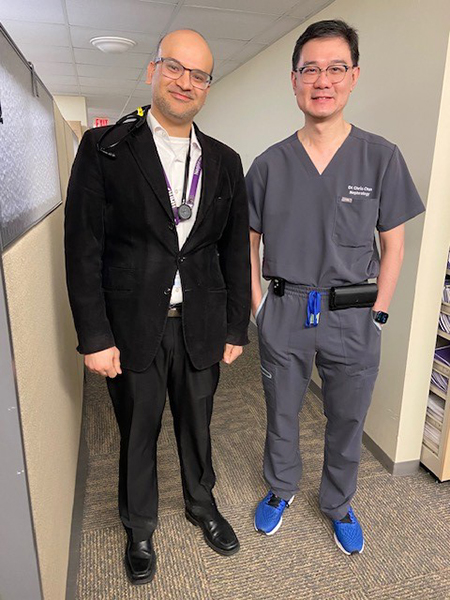
Chronic kidney disease (CKD) affects one in 10 Canadians, according to the Canadian Institute for Health Information. Worldwide, more than 850 million people live with CKD and acute kidney injury, and receive kidney replacement therapy such as dialysis or kidney transplant.
CKD is silent by nature — affected individuals are often asymptomatic until the disease has advanced. The goal of World Kidney Day is to raise global awareness about the important role kidneys play in our overall health, and ways the general public and health care providers can detect CKD early to lessen the impact of this incurable and life-limiting disease.
Awareness of the true magnitude of CKD is low among the general public and health care communities, which means there are missed opportunities to detect the disease early enough for timely referral to nephrologists for monitoring and treatment.
On World Kidney Day, UHN’s Division of Nephrology, a world-renowned program that is a beacon to many who wish to learn from leading experts in different branches of nephrology, will look to raise awareness and promote kidney health by hosting a booth near the Eaton entrance of Toronto General Hospital.
“We foster a collaborative ecosystem where multidisciplinary teams seamlessly integrate clinical care, research and education to advance kidney health,” says Dr. Christopher Chan, Director of UHN Nephrology. “This ensures comprehensive patient support and innovative treatment approaches across our enterprise network.”
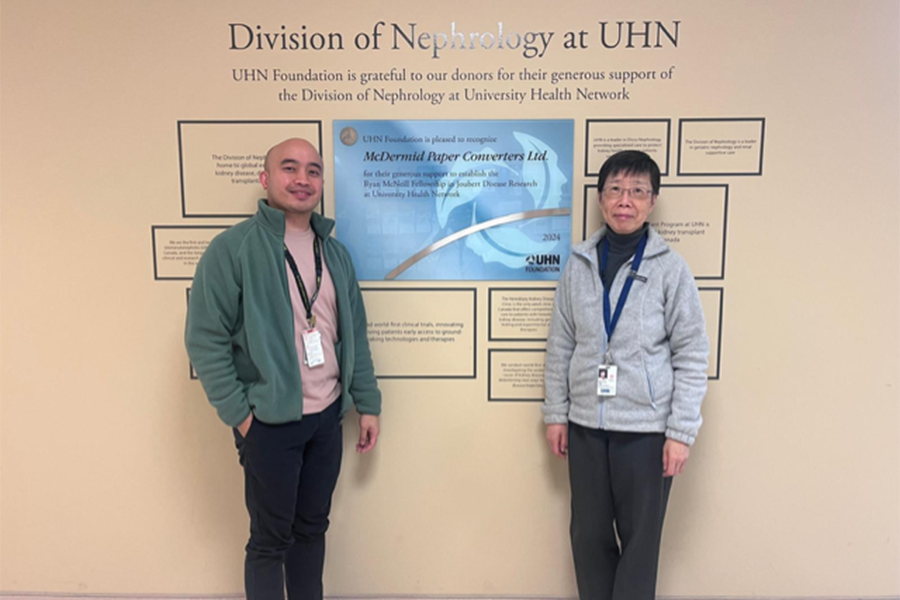
UHN’s Multi-Care Kidney Clinic does not detect early as many patients come in with advanced stages of the disease. But registered nurse Zedfrey Salazar says staff in the clinic “engage patients in symptom management through medication and diet to delay the progression of chronic kidney disease to kidney failure requiring dialysis.”
Angela Tse, social worker in the clinic, adds: “The interdisciplinary team supports patients in exploring the treatment modalities upon progression of their disease, and supports patients as they transition to dialysis or are preparing for kidney transplant.”
Staff nephrologist Dr. Asad Merchant echoes this sentiment.
“Building trust, educating patients and families, and patience are key in developing a strong and healthy relationship,” says Dr. Merchant. “That will help patients make decisions that fits best with the values that are important in how they wish to live, and the treatments that will bring them the most satisfaction in their lives.”
William Woolrich illustrates this point. A 56-year-old college professor, impaired kidney function manifest itself in his teens and he was diagnosed with lupus in his 30s. In his early 50s, he began to be followed by a nephrologist at UHN.
William required ICU admission, receiving two cardiac stents and started SLED (slow low efficiency dialysis). He eventually transitioned to peritoneal dialysis (PD) catheter in 2022.
William’s story underscores the importance of kidney health and the need for early detection of signs of chronic kidney disease. While dialysis is certainly an adjustment to your life, he notes that receiving it has also allowed him to recently return to full-time teaching.
William is thankful for the support he’s received over the years from his family and work colleagues, as well as the multidisciplinary kidney care and expertise he’s experienced at UHN.
“The health care system has done very well by me,” he says.

No one ever changed the world on their own but when the bright minds at UHN work together with donors we can redefine the world of health care together.
